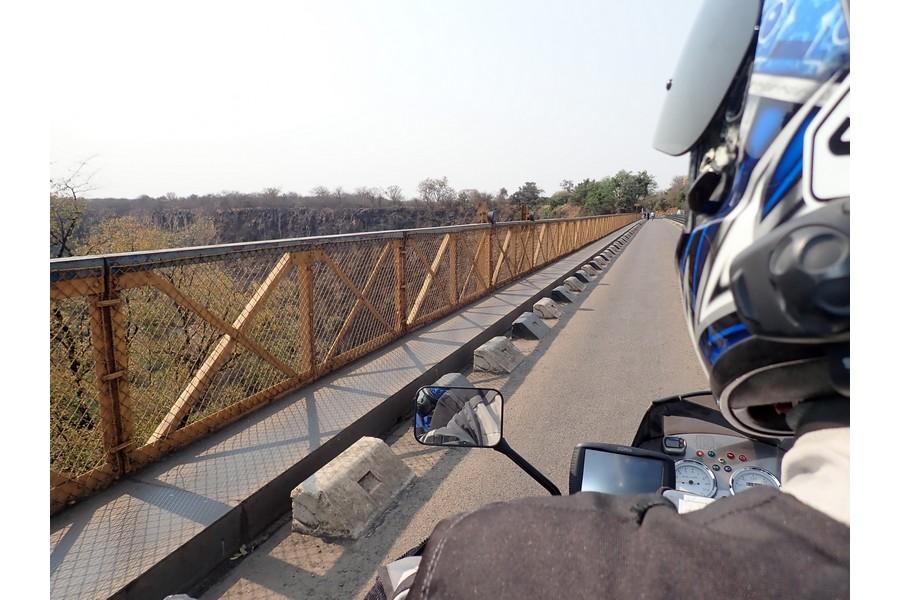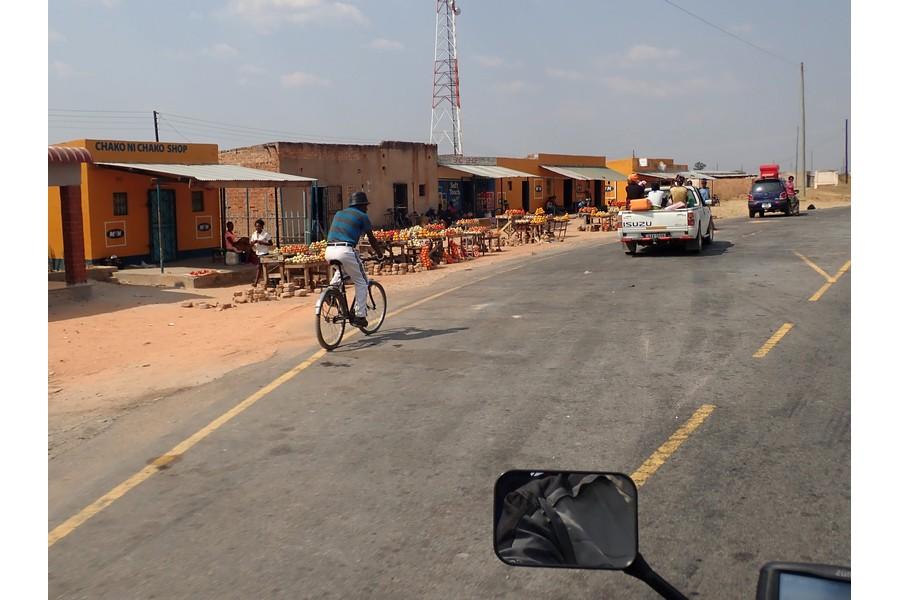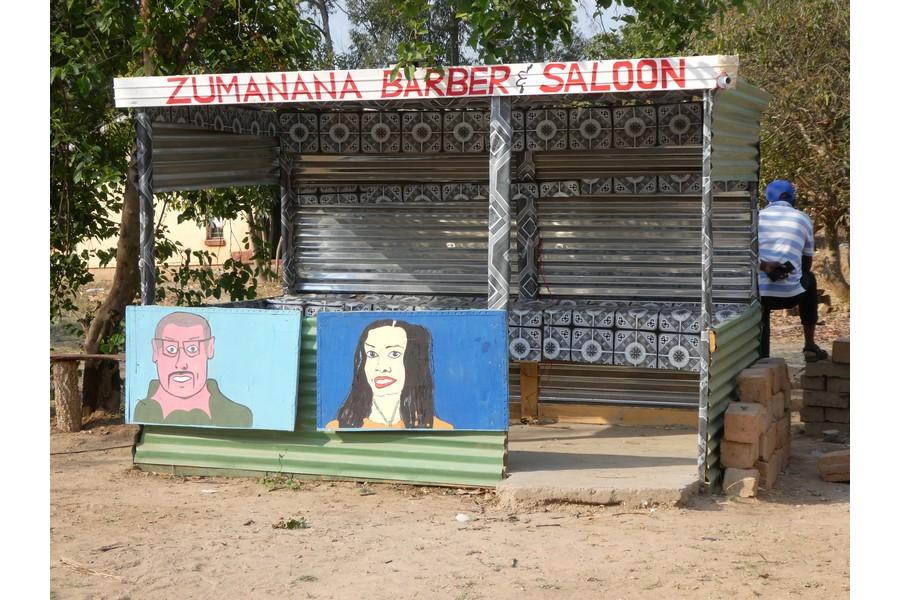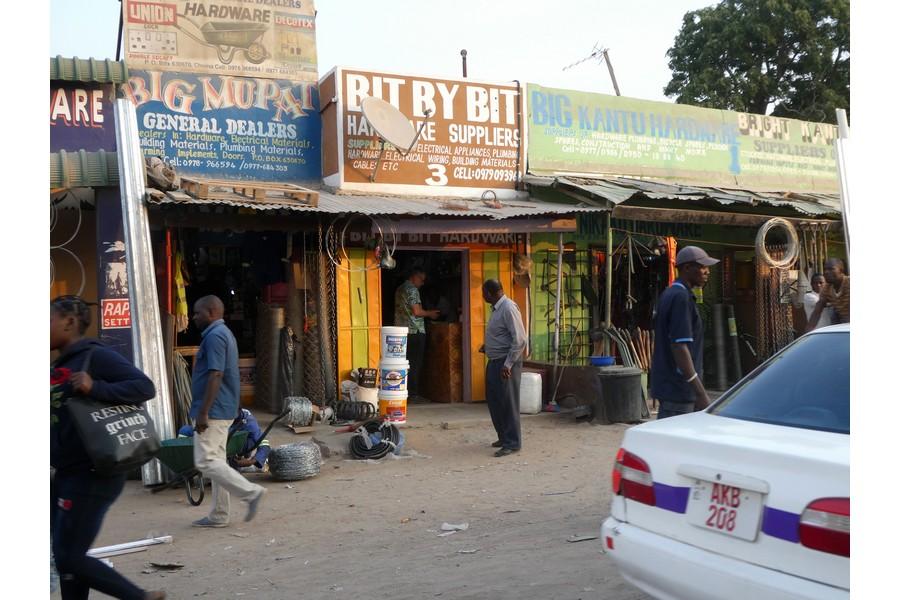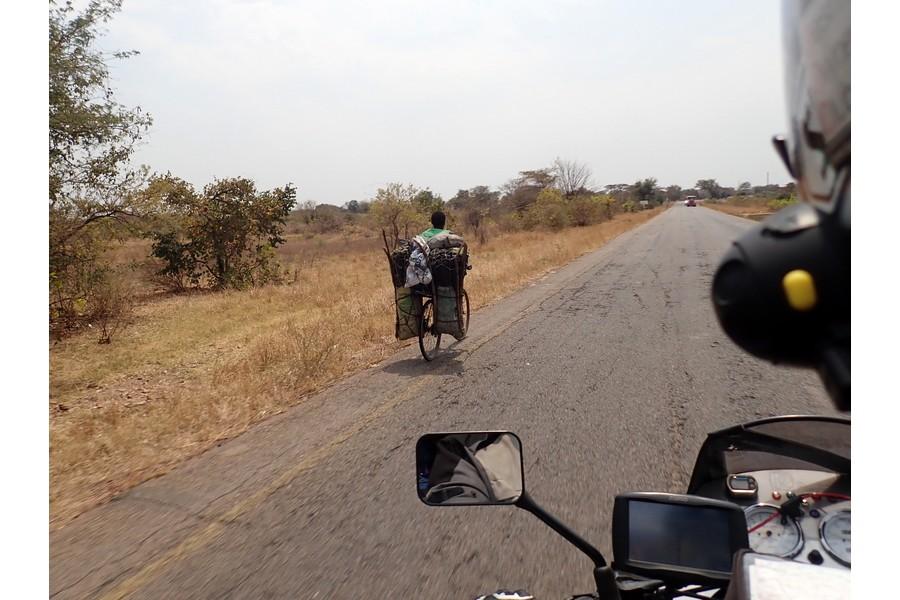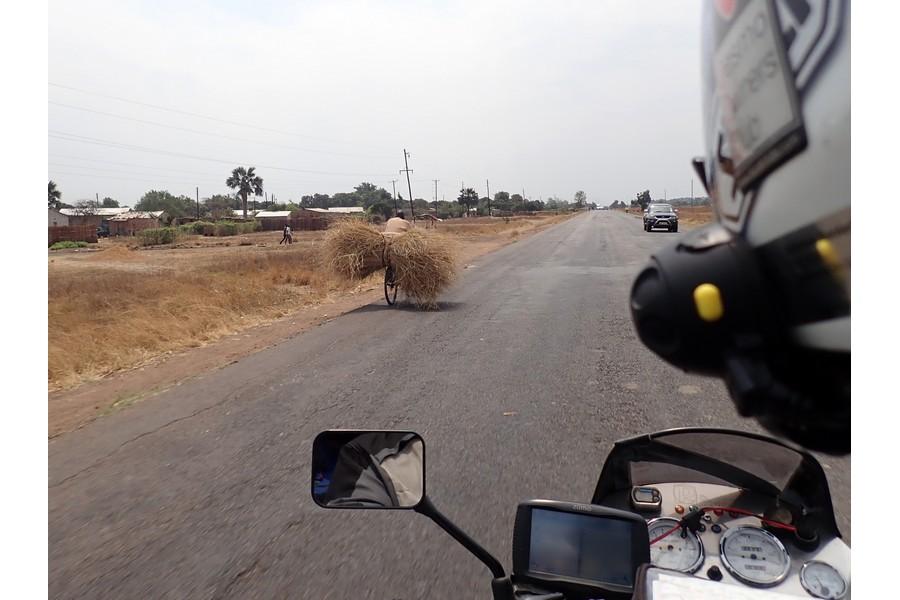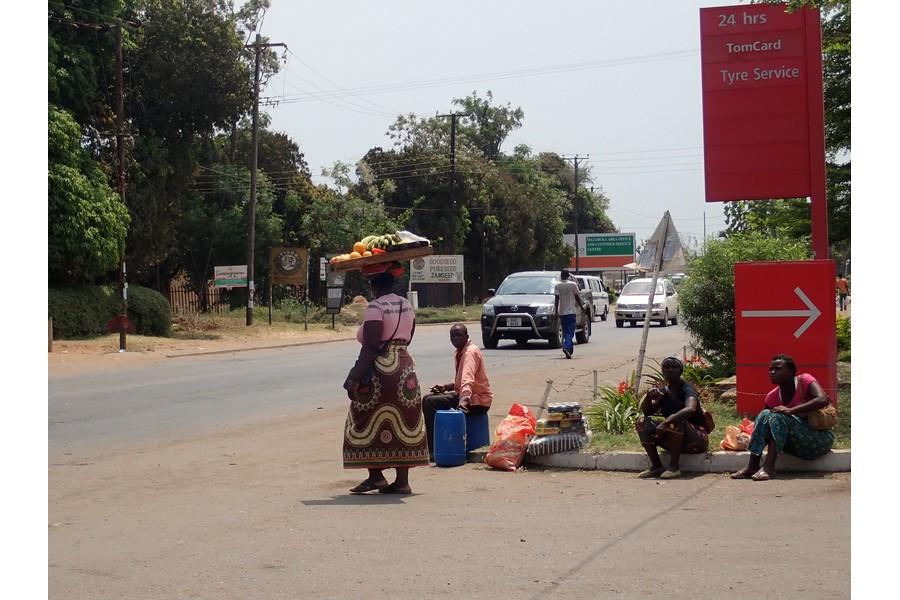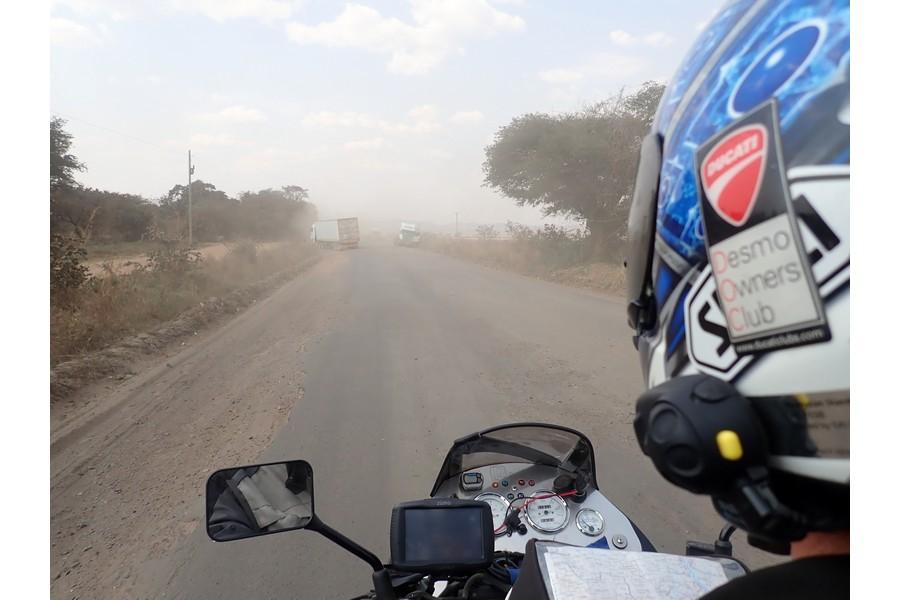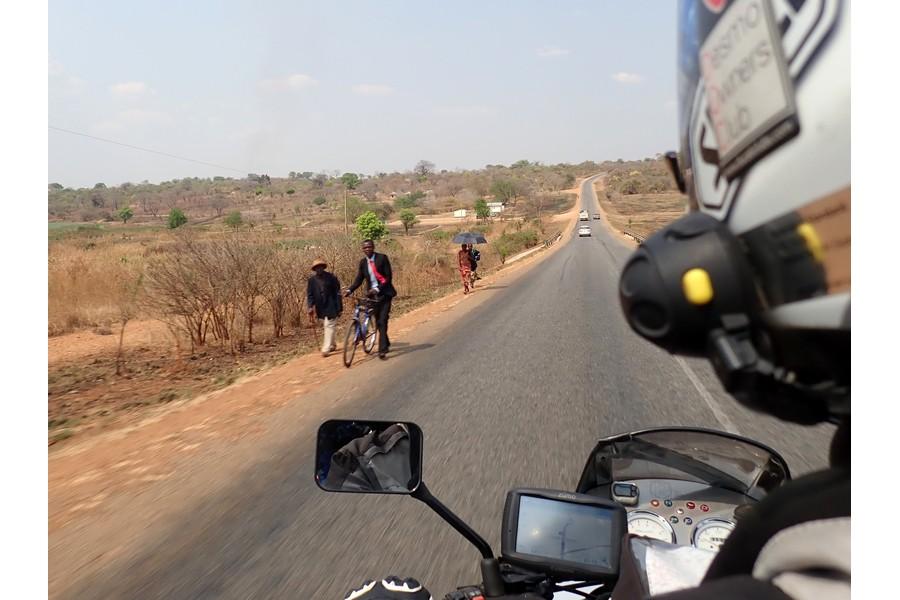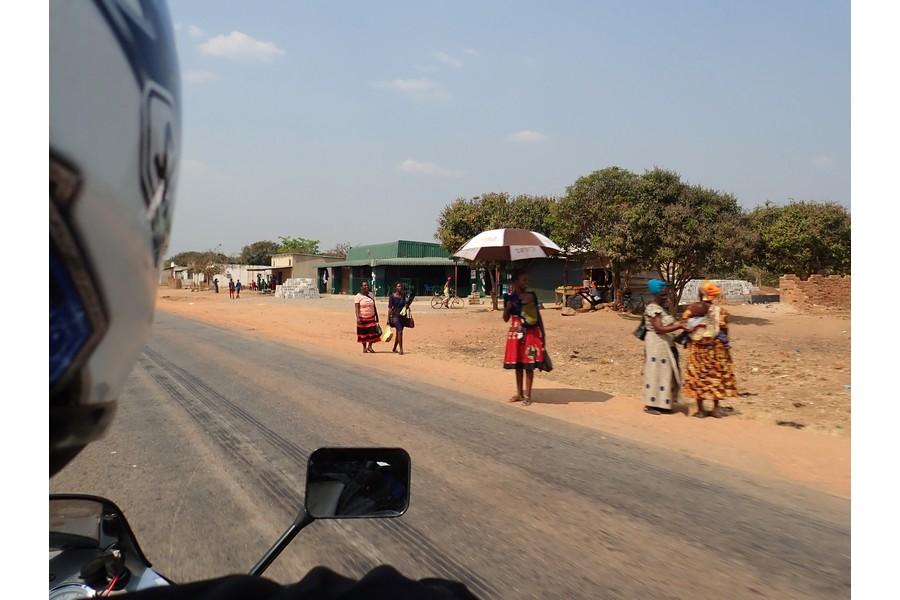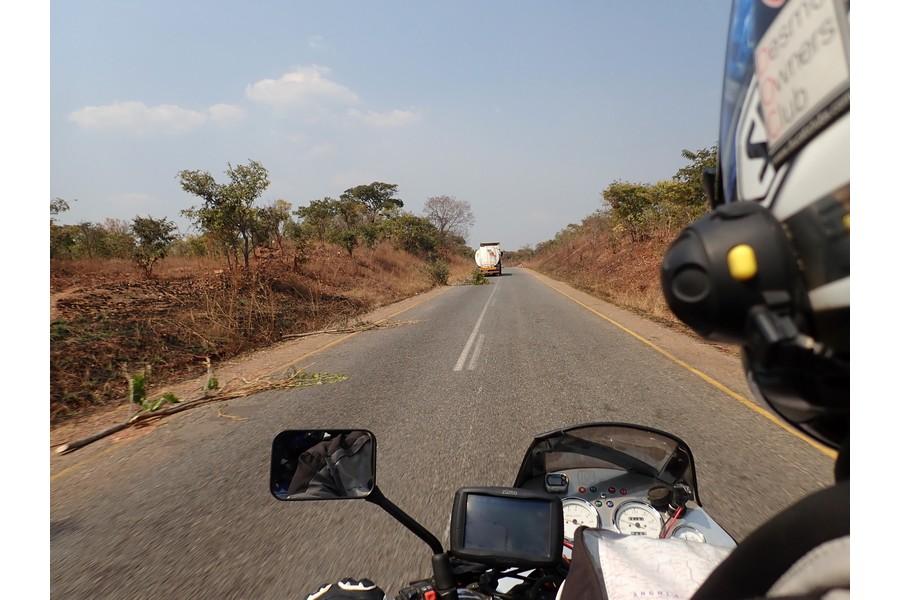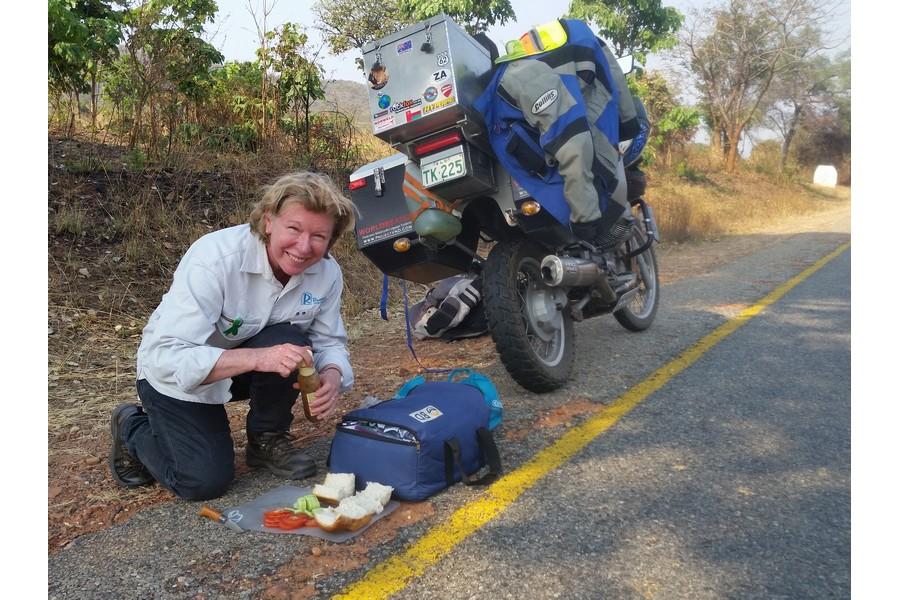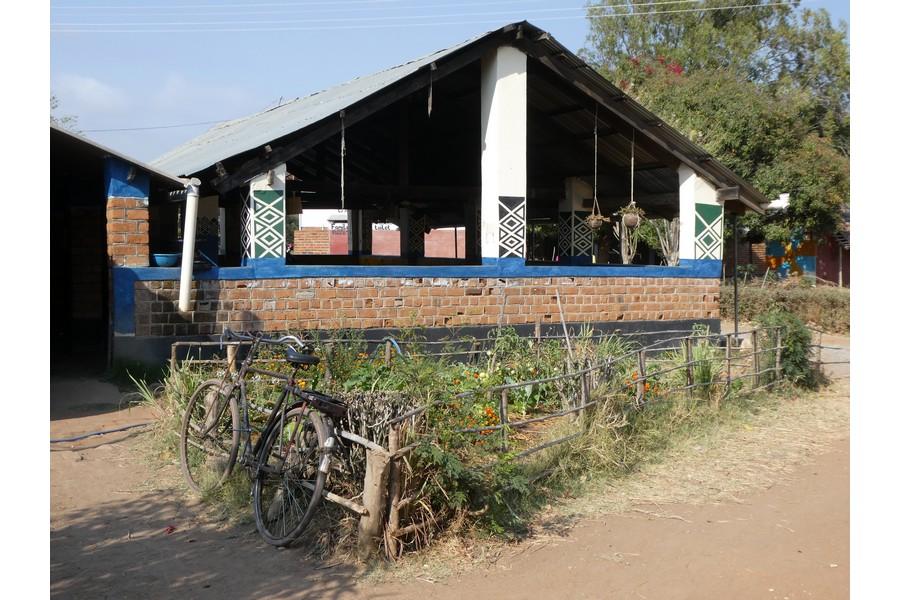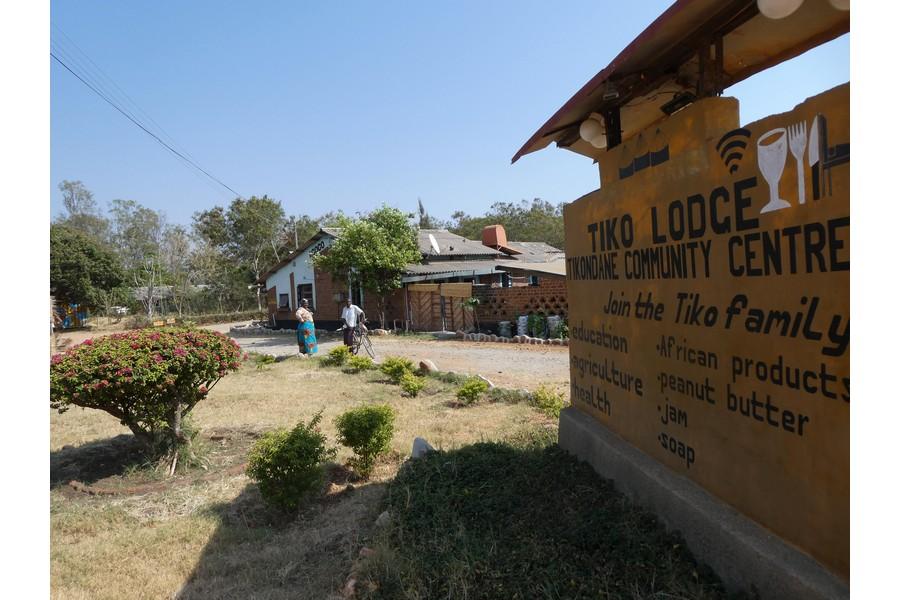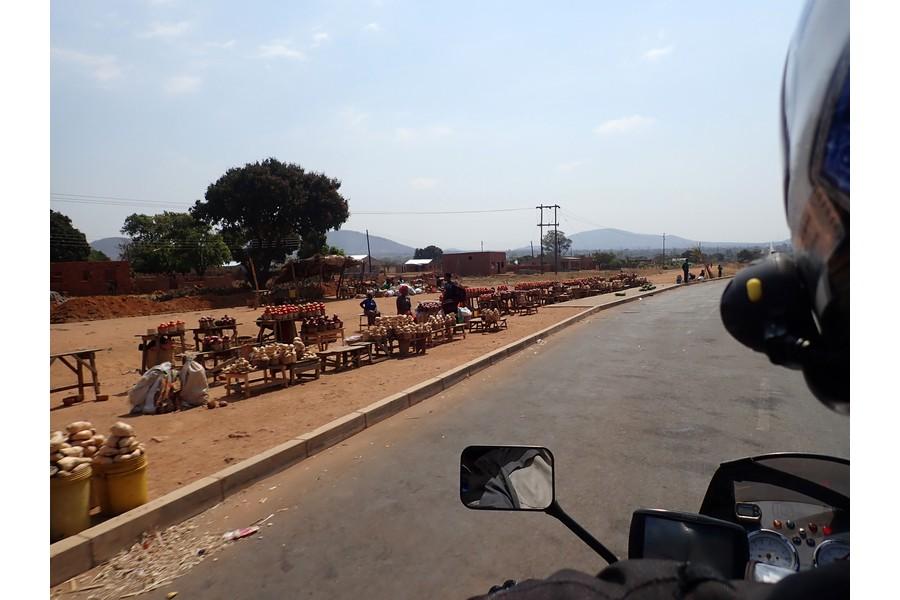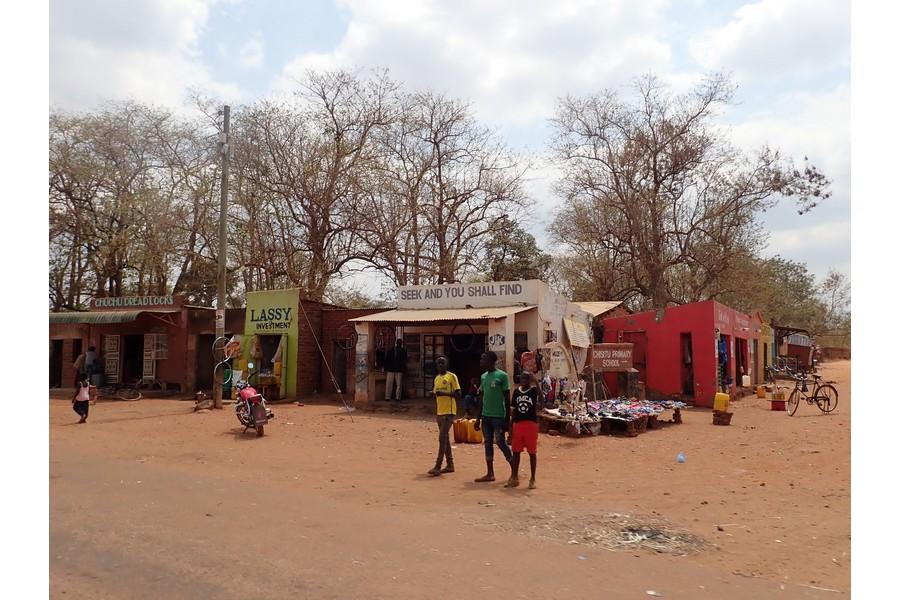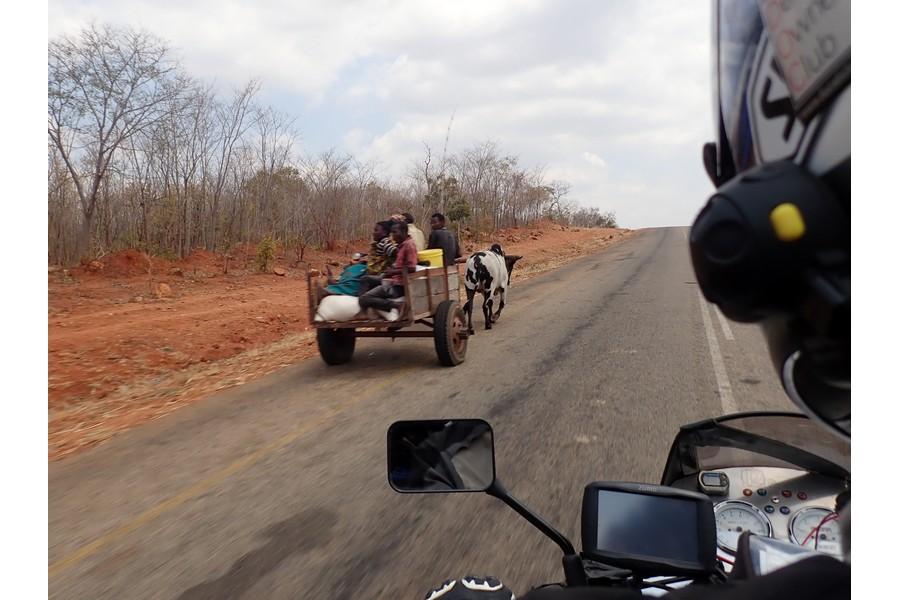Ah…This Is Africa
Country
Our exit from Zimbabwe felt quite grand. We rode across the Victoria Falls Bridge trailing the “Pride of Africa”, an original 1930’s steam train, with Cecil Rhode’s words in our heads “build the Bridge across the Zambezi where the trains, as they pass, will catch the spray of the Falls”.
It was bittersweet to leave Zimbabwe as the people were just lovely but their country is in turmoil. Zimbabwe has been facing a major cash shortage for years, stemming from massive hyperinflation in the years leading up to 2009. Inflation was so bad that the Reserve Bank was printing notes with a valuation of 100 trillion Zimbabwean dollars, worth approximately 300 USD at the time. Zimbabwe eventually abandoned its currency in favour of using other currencies, particularly USD. With a widening trade deficit and lack of foreign investment, USD became harder and harder to come by, so the central bank introduced “bond notes” in 2016, worth $1 each in the country, but worthless outside of Zimbabwe.
Dale was about to head to the fuel station the day before we left, to be told not to bother as there was a fuel shortage. People were lining up for miles to just get what they could and taxi drivers were travelling 100kms to the next town, loaded with empty drums, with the hope of getting as much fuel as they could bring back to Victoria Falls. Our host, Mambo, was in the throes of concreting a new driveway to his establishment, and told us that yesterday he could buy bags of cement for 7 USD, but today they cost 20 USD.
On a brighter note, as we were packing the Guzzi panniers and were decked out in our riding pants, boots, jackets, helmets and gloves, Mambo was fascinated! He probably hadn’t contemplated what his grey haired, older guests would actually look like on the Guzzi. As we were saying our goodbyes, he said “I love this! You look like renegades”…
After Victoria Falls, our original plan was to ride a little way into Zim and put the Guzzi and ourselves on an 18 hour ferry travelling the length of Lake Kariba, from Mlibizi to Kariba. The owner/operator had been trying for weeks to make the trip happen, but with fewer tourists around, he just couldn’t justify the trip in the end. The alternative for us was a 1200km ride through Zambia to get to our next destination, the South Luangwa National Park.
We weren’t really enthused about such a long road journey, but ended up being kept surprisingly entertained the whole way. We began to feel we had touched on the real Africa, being privy to Zambians going about their lives as we travelled through their homeland. Sundays are wonderful days to experience life in Africa as everyone is dressed in their Sunday best to spend time at church and with family. The different coloured suit and tie ensembles and the dresses were fabulous. Everyone travels around by bicycle. The men skilfully pack their bikes, often higher than their heads, with everything from bales of charcoal, building supplies, to wives and children. The women carry their loads on their heads. It’s difficult to gauge the weight of what they carry, but drums of potatoes can’t be that light! And ox and carts are still alive and well. Ah…TIA…This is Africa!
Trucks seem to always be breaking down. In consideration for vehicles behind, they lay a series of tree branches as a warning that they have stopped up ahead and are either fixing a tyre and/or remodelling engine space under the bonnet.
We didn’t average much more than 220kms each day. The roads were pretty good, but some parts were being resurfaced, particularly the stretch before the capital, Lusaka. Actually that stretch was pretty awful and we were forced onto many detours through the dust, soft sand and in amongst heaps of trucks. We rode into Lusaka, hot, cranky and very dirty. Putting a positive spin on that part of the journey, Dale said “without that, life is like luke warm porridge”!
After Lusaka, accommodation is sparse and Bridge Camp is the only decent looking place to hole up for a night. We had heard bad reviews about the place being under maintained, dark and dingy and overpriced. Given there was really nowhere else to stay, we thought we’d call in and attempt to bargain a reasonable price, given all we wanted was a shower and a bed, and we would be leaving early the next morning. Our hopes were high, even given the bad reviews. The 100 USD price tag almost had me confirming with the guy that we didn’t want to buy the room! With a smile on my face, I got him down to 70 USD, but this was still very much over our budget. Thank you very much, but we felt compelled to teach Bridge Camp a lesson! We returned the 2.5kms into the little township (aka rubbish dump of a place) called Smart. We called into the first Guest House and swiftly did an about-face. The second Guest House was marginally better, but by this stage we felt we could brave their cold showers and a 7 USD pokey room, simply just to get off the bike.
Dale and I have had dengue fever, so we are ultra-cautious in the company of mosquitos. We carry our own mosquito net and swiftly hung this in the room, in preference to using their scummy old nets. Not liking the look of the linen, we used our own sleeping bag liners and towels. We were now travelling in much warmer climes than previously, so the sleeping bags stayed on the Guzzi and the cold showers were actually quite OK. A self-catered dinner done and dusted, we thought we’d retire for the evening. I had purchased a new mosquito net to replace our old one, and was quite happy to find one with very fine mesh. No malaria or dengue carrying mosquito was going to make its way through to us! I hadn’t factored in that with such fine mesh in a hot climate, it would actually keep out more than mosquitos - it felt like it was keeping out all fresh air as well! Boy, was that a looooonnnng sweaty night. We both kept dreaming of icy cold showers. Yes siree Mr Bridge Camp, we sure did teach you a lesson!
One of our evening stays was at Tikondane Community Centre, a non-profit, non-political, interdenominational, community-based organisation near Katete. Their mission is to provide adult and child education, training in sustainable agricultural and training of home-based carers for AIDS victims. As part of the Centre, Tiko Lodge provides an income to sustain community efforts with all earnings from overnight guests going directly back into projects. It was a pleasant and interesting stay to be a part of a group of locals helping other locals.
We were happy to reach South Luangwa National Park and our tented chalet overlooking the Luangwa River. It is an unfenced area and when you arrive, you are warned that wild animals will walk through the grounds. If you encounter an elephant, keep completely still and do not make a sound. If you encounter a hippo, make some noise and they will move away…

